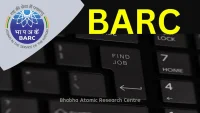SSC JE EE Syllabus 2023 is available here in this page. SSC Junior Engineer (Electrical Engineer) Exam Pattern form the table below. Candidates who have applied for the SSC JE EE Examination are able to Download the SSC JE EE Syllabus 2023. With the help of this SSC JE EE Syllabus 2023 you can know the knowledge skills. So we are advised you to Download the SSC JE Electrical Engineer Syllabus 2023. The SSC JE EE Syllabus 2023 will only available in PDF Format. Our www.schools360.in provides this SSC JE EE Syllabus 2023 for free of cost. Additionally we have gathered the SSC JE EE Exam Pattern 2023 also. The officials of Staff Selection Commission will conducts the Junior Engineer (Electrical Engineer) Exam to hire the candidates who are fit for it. In order to help out the applicants, we have provided the direct link to download the SSC JE Electrical Syllabus PDF at the end of this page.
Overview of SSC JE EE Syllabus 2023
| Organization Name | Staff Selection Commission (SSC) |
| Post Name | Junior Engineer (Electrical Engineer) |
| Category | Syllabus |
| Selection Process | Computer Based Test, Written Test, Physical Standard Test, Physical Efficiency Test, Medical Test |
| Location | Across India |
| Official Site | ssc.nic.in |
SSC JE EE Exam Pattern 2023
| Papers | Paper-I Objective Type | Paper-II Descriptive Type |
| Mode of Exam | Computer Based Test | Written Examination |
| Subject |
| General Engineering (Electrical) |
| Maximum Marks |
| 300 |
| Duration | 2 Hours | 2 Hours |
- DSSC Syllabus (PDF) Steno, LDC, Fireman, Driver, MTS Exam Pattern
- JKCET Syllabus 2021 (Pdf) Subject wise JKCET Exam Pattern Download
- POLYCET Previous Question Papers (2006-2025) with Answers
- POLYCET Study Material Free PDF & Bit Bank Book
- KTET Syllabus 2026, Kerala TET Subject-wise Syllabus PDF
- Bihar BPSC Civil Judge Syllabus & Exam Pattern
- MP Cooperative Apex Bank Clerk Syllabus 2026
- UPSC CAPF AC Syllabus 2026 Exam Pattern (Updated)
ssc.nic.in Download SSC JE EE Syllabus 2023 Subject Wise
candidates will come to know the complete SSC JE EE Syllabus 2023. Therefore, candidates can prepare for the SSC JE EE Exam from the given topics. Moreover, the SSC JE EE Exam Syllabus gives a clear idea regarding the topics that are to be prepared for the SSC JE EE Exam Exam. After downloading the SSC JE EE Exam Syllabus 2023 & Exam Pattern PDF from this page, candidates can make the best schedule for effective preparation.
The standard of the questions in Engineering subjects will be approximately of the level of Diploma in Engineering (Civil/ Electrical/ Mechanical/Electronics) from a recognized Institute, Board or University recognized by All India Board of Technical Education. All the questions will be set in SI units. The details of the syllabus are given below:
SSC JE Electrical Paper-I Syllabus
| General Intelligence & Reasoning | The Syllabus for General Intelligence would include questions of both verbal and non-verbal type. The test may include questions on analogies, similarities, differences, space visualization, problem solving, analysis, judgement, decision making, visual memory, discrimination, observation, relationship concepts, arithmetical reasoning, verbal and figure classification, arithmetical number series etc. The test will also include questions designed to test the candidate’s abilities to deal with abstract ideas and symbols and their relationships, arithmetical computations and other analytical functions. |
| General Awareness | Questions will be aimed at testing the candidate’s general awareness of the environment around him/her and its application to society. Questions will also be designed to test knowledge of current events and of such matters of everyday observations and experience in their scientific aspect as may be expected of any educated person. The test will also include questions relating to India and its neighbouring countries especially pertaining to History, Culture, Geography, Economic Scene, General Polity and Scientific Research, etc. These questions will be such that they do not require a special study of any discipline. |
| General Engineering (Electrical) | Basic concepts, Circuit law, Magnetic Circuit, AC Fundamentals, Measurement and Measuring instruments, Electrical Machines, Fractional Kilowatt Motors and single phase induction Motors, Synchronous Machines, Generation, Transmission and Distribution, Estimation and Costing, Utilization and Electrical Energy, Basic Electronics. |
SSC JE Electrical Paper-2 Syllabus
Basic concepts: Concepts of resistance, inductance, capacitance, and various factors affecting them. Concepts of current, voltage, power, energy and their units.
Circuit law : Kirchhoff’s law, Simple Circuit solution using network theorems.
Magnetic Circuit : Concepts of flux, mmf, reluctance, Different kinds of magnetic materials, Magnetic calculations for conductors of different configuration e.g. straight, circular, solenoidal, etc. Electromagnetic induction, self and mutual induction.
AC Fundamentals: Instantaneous, peak, R.M.S. and average values of alternating waves, Representation of sinusoidal wave form, simple series and parallel AC Circuits consisting of R.L. and C, Resonance, Tank Circuit. Poly Phase system – star and delta connection, 3 phase power, DC and sinusoidal response of R-Land R-C circuit.
Measurement and measuring instruments: Measurement of power (1 phase and 3 phase, both active and re-active) and energy, 2 wattmeter method of 3 phase power measurement. Measurement of frequency and phase angle. Ammeter and voltmeter (both moving oil and moving iron type), extension of range wattmeter, Multimeters, Megger, Energy meter AC Bridges. Use of CRO, Signal Generator, CT, PT and their uses. Earth Fault detection.
Electrical Machines : (a) D.C. Machine – Construction, Basic Principles of D.C. motors and generators, their characteristics, speed control and starting of D.C. Motors. Method of braking motor, Losses and efficiency of D.C. Machines. (b) 1 phase and 3 phase transformers – Construction, Principles of operation, equivalent circuit, voltage regulation, O.C. and S.C. Tests, Losses and efficiency. Effect of voltage, frequency and wave form on losses. Parallel operation of 1 phase /3 phase transformers. Auto transformers. (c) 3 phase induction motors, rotating magnetic field, principle of operation, equivalent circuit, torque-speed characteristics, starting and speed control of 3 phase induction motors. Methods of braking, effect of voltage and frequency variation on torque speed characteristics.
Fractional Kilowatt Motors and Single Phase Induction Motors: Characteristics and applications.
Synchronous Machines – Generation of 3-phase e.m.f. armature reaction, voltage regulation, parallel operation of two alternators, synchronizing, control of active and reactive power. Starting and applications of synchronous motors.
Generation, Transmission and Distribution – Different types of power stations, Load factor, diversity factor, demand factor, cost of generation, inter-connection of power stations. Power factor improvement, various types of tariffs, types of faults, short circuit current for symmetrical faults. Switchgears – rating of circuit breakers, Principles of arc extinction by oil and air, H.R.C. Fuses, Protection against earth leakage / over current, etc. Buchholtz relay, Merz-Price system of protection of generators & transformers, protection of feeders and bus bars. Lightning arresters, various transmission and distribution system, comparison of conductor materials, efficiency of different system. Cable – Different type of cables, cable rating and derating factor.
Estimation and costing : Estimation of lighting scheme, electric installation of machines and relevant IE rules. Earthing practices and IE Rules.
Utilization of Electrical Energy : Illumination, Electric heating, Electric welding, Electroplating, Electric drives and motors.
Basic Electronics : Working of various electronic devices e.g. P N Junction diodes, Transistors (NPN and PNP type), BJT and JFET. Simple circuits using these devices.








